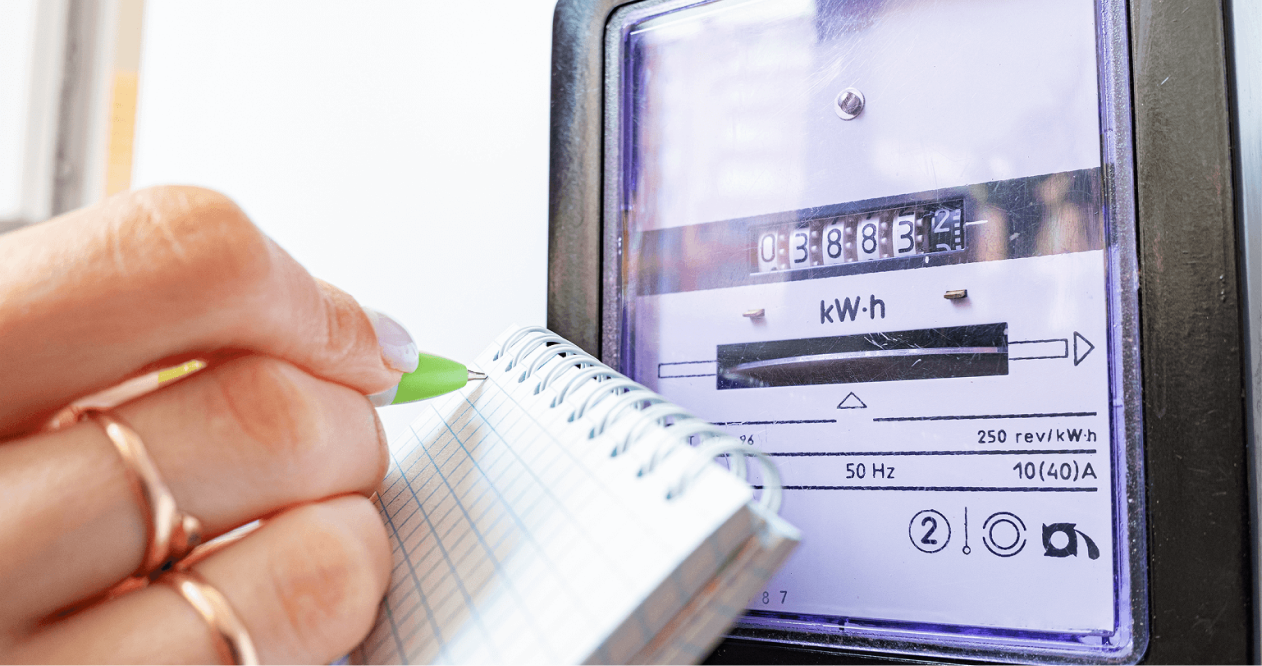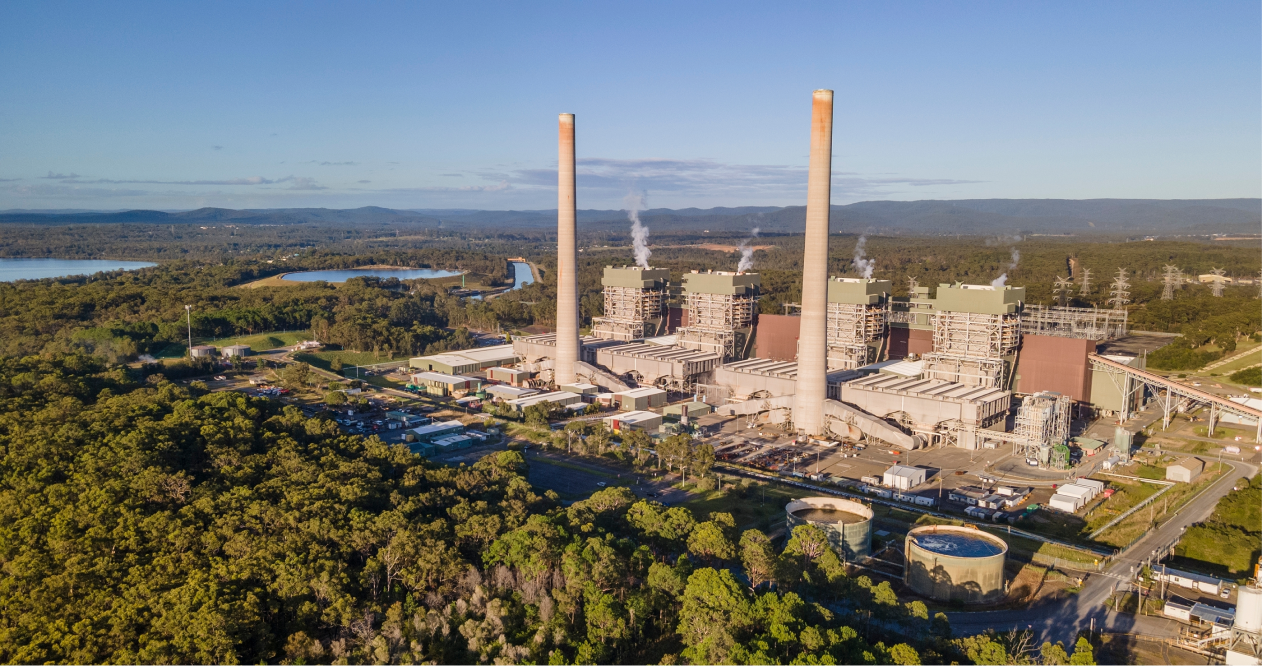Who is Zembl?
For more than 15 years, Zembl has been offering energy procurement and energy bill comparison services to Australian businesses, helping businesses from the smallest café to the biggest manufacturer buy better for their energy.
For Commercial & Industrial business who use our energy procurement services we partner with leading energy intelligence platform Energetica to analyse their meter data in real-time and provide ongoing energy intelligence – so they know more, use less and ultimately pay less for their energy.
Zembl provides energy bill comparisons for smaller businesses and energy procurement for Commercial & Industrial businesses.
What is energy intelligence?
Imagine having a detailed map of your energy usage, highlighting your business's smart meter data in real-time across all its sites with AI harvesting the insights that could transform your energy efficiency business-wide, for the better. That's the power of energy intelligence.
Whether you're a Café operator or a CFO, understanding energy intelligence can revolutionise your business's efficiency, profitability and (as a bonus for the planet) sustainability.
Energy intelligence involves the collection, analysis, and application of energy data to uncover insights, optimise usage, reduce costs, and drive energy efficiency and sustainability. By providing insights into energy consumption patterns, energy intelligence empowers businesses to make informed decisions. It’s not just about cutting costs; it's about making energy a strategic asset rather than just an operational expense.
How energy intelligence platforms work
Energy intelligence platforms rely on one key ingredient to function: meter data. Today’s AI-powered platforms and tools need advanced smart meter data that’s both digital and being generated in real-time. By capturing real-time data from smart meters, these platforms enable businesses to monitor their energy consumption continuously. This detailed analysis allows for the identification of peak usage times and potential areas for improvement. Platforms can then generate actionable recommendations, such as load shifting or demand response strategies, to optimise energy consumption. Additionally, meter data aids in precise forecasting and budgeting, ensuring that organisations can predict and manage their energy costs effectively.
Meter data also enables energy intelligence platforms to perform functions like bill validation and network tariff analysis. By comparing actual consumption data with billing information, businesses can identify discrepancies and ensure accurate billing. Additionally, meter data can help companies assess their eligibility for different network tariffs, potentially leading to cost savings.

Why energy intelligence?
If energy efficiency is the house you're building, energy intelligence is your foundation. For energy efficiency initiatives to stand up and hold true, they need to first be grounded in real-time ever-evolving meter data, ideally coupled with other business intelligence about your operations, premises, equipment and holistic energy efficiency opportunities.
Energy intelligence delivers for businesses in three key areas:
- Ongoing insight in real-time
Energy intelligence isn't a report someone prepares once a year and puts in the bottom drawer – to be meaningful it needs to follow patterns, observe changes, uncover insights, and be ‘always on’. For instance, by analysing your energy data, you might discover that peak-time usage can be shifted to off-peak hours, reducing costs without affecting operations. This would not be possible without a constant data feed, and the ability to analyse on an ongoing and ever-evolving basis.
- Improved operational efficiency
One of the biggest wins from energy intelligence for businesses is operational efficiency. With real-time monitoring and predictive analytics based on past patterns, businesses can both see what’s happening now and predict what might happen next in terms of their energy usage. This empowers business operators with the knowledge to take a less ‘set and forget’ approach to their energy usage and be more proactive in optimising it.
- Sustainability scorecard benefits
As customers increasingly value eco-friendly businesses, reducing your carbon footprint can enhance your brand image and attract more of today’s eco-conscious consumers. Energy intelligence provides the data and insights needed to implement and track sustainability initiatives effectively – plus it leads to making claims that are more than hot air; they’re backed up in data that can be strongly validated and put to work in everything from employee programs to PR and external-facing campaigns.
Areas energy intelligence can target
Once the foundation of continuous and freely flowing energy intelligence is in place, businesses are empowered to turn insight into action, with significant potential benefits for everything from your bottom line to operational peace of mind. Typically, the areas to target fall into these four buckets:
- Bill validation
Think of bill validation as your housekeeping. This process ensures that your energy bills are accurate by cross-referencing them with real usage data. Errors in billing can be common, and without proper validation, businesses might end up paying more than necessary.
For commercial and industrial businesses, bill validation can lead to a significant increase in cost efficiency. Better still, today’s AI-powered analytics platforms can make this process seamless, identifying discrepancies which, in the hands of expert Energy Experts who know what to look for, can be rectified on your behalf.
- Network tariff analysis
Your retailer’s energy rates aren’t the only cost that can impact your business’s bottom line – network tariffs account for up to 30% of your business’s total energy bills. The network tariff is what networks charge you to use their infrastructure that delivers electricity to your sites. They are assigned by the distributor based on your business’s demand and consumption patterns – patterns that can be pinpointed by energy intelligence when monitored and analysed by an expert eye. Ongoing network tariff analysis, with a network tariff review twice a year is a prudent approach and one that could unlock significant savings, or simply the peace of mind that you’re not paying more than you should be.
- Monitoring for energy efficiency
Energy efficiency, is reducing the amount of energy consumed to achieve an operational output. Real-time energy intelligence makes monitoring for energy efficiency not only possible, but easier and more thorough, thanks to the advanced AI-powered features of today’s leading energy intelligence platforms.
That’s because one of the most helpful features of AI as a technology, is its ability to process more data than any human ever could, then present up its insights instantaneously. This capability is particularly useful for businesses such as hotels or manufacturing plants that need to maintain high levels of efficiency while managing fluctuating energy demands. By being shown peak usage times and unnecessary consumption, businesses can make informed decisions to reduce waste and cost.t. It can also help identify opportunities for larger efficiency upgrades, such as installing solar, battery systems or Power Factor Correction devices, based on usage patterns.
- Energy expense budgeting
Effective budgeting is crucial for any business, and energy expenses are a significant component. By using AI-powered energy intelligence, businesses can forecast electricity costs with more precision than ever before.
For retail businesses and procurement managers for example, having accurate forecasts allows for better financial planning and resource allocation. By integrating these insights into budgeting process, they can manage energy expenses more effectively and avoid unexpected costs.

Top sectors benefitting from energy intelligence
Whilst businesses big and small can all benefit from knowing more about their energy usage data, the ones that stand to gain the most from advanced energy intelligence tend to be those with complex energy consumption and needs – where they’re operating across multiple sites with significant peaks and troughs of demand to manage. Here are some examples of the industries that can benefit most from energy intelligence and how.
Manufacturing industry
The manufacturing industry is a major energy consumer, making it a prime candidate for energy intelligence solutions. By utilising advanced monitoring and analytics tools, manufacturers can optimise their energy usage and reduce costs.
Energy intelligence enables manufacturers to adopt more sustainable practices, such as energy-efficient production processes and renewable energy sources. By reducing their carbon footprint, companies can enhance their corporate social responsibility and improve their brand image. This is particularly important as consumers become more environmentally conscious and demand sustainable products.
Additionally, poor Power Factor is a common issue in manufacturing, and through monitoring, we can analyse usage and size a Power Factor Correction device to significantly reduce demand charges and improve energy efficiency.
Hospitality sector
Hotels, resorts, and other hospitality businesses are increasingly turning to energy intelligence to manage their energy consumption. By analysing energy data, these establishments can identify areas of improvement and implement energy-saving strategies. For example, hotels can use smart thermostats and lighting controls to optimise energy usage based on occupancy levels.
Energy intelligence also allows hospitality businesses to monitor and optimise their water usage, another critical resource for this sector. By reducing energy and water consumption, hotels can lower operating costs and offer more environmentally friendly services. This not only benefits the bottom line but also attracts eco-conscious travellers looking for sustainable accommodations.
Retail industry
Retailers face unique energy challenges due to the diverse range of products and services they offer, and the seasonality of their sales cycles and opening hours. Energy intelligence can help retailers optimise their energy usage by analysing consumption patterns and identifying inefficiencies. For example, smart lighting systems can automatically adjust brightness based on natural light levels, reducing energy waste.
By implementing energy intelligence solutions, retailers can enhance their sustainability efforts and reduce their carbon footprint. Additionally, optimising energy usage can lead to cost savings, allowing retailers to invest in other crucial areas of their business, such as marketing or product development, which is always an especially high priority for retailers.
Hospitals and healthcare
Healthcare facilities, such as hospitals and clinics, require significant amounts of energy to operate their equipment and maintain a comfortable and clinically reliable environment for patients and staff – especially when lives can be at stake. By analysing energy data, healthcare facilities can identify areas of inefficiency and implement energy-saving measures, such as upgrading to energy-efficient equipment or optimising HVAC systems.
Once again, energy intelligence supports healthcare facilities in their sustainability efforts, which is particularly important in the healthcare sector, where environmental sustainability is increasingly recognised as a critical component of patient care and wellbeing. In addition, the cost savings achieved through improved energy intelligence can free up resources that may be redirected toward enhancing patient care and operational outcomes.
Fitness and recreation centres
Gyms, fitness clubs, and recreational facilities consume a considerable amount of energy due to their extensive equipment and heating, ventilation, and air conditioning (HVAC) systems.
Gyms also experience significant surges in demand, for example, before or after the 9 to 5 as office workers flock to fit in their workouts with their jobs. Energy intelligence can help identify these surges and provide the insight for strategies that spread out energy consumption so they can avoid paying higher tariffs due to maxing their consumption during peak demand periods.
In some cases, analysing this data may also reveal opportunities to install battery storage systems that help offset peak usage and further reduce energy costs.

Energy intelligence technology today
In times gone by, businesses’ only access to their energy usage data was on the back pages of their monthly bill. Today however, we’re a good few steps along a technology trajectory that started with the smart meter and ends ‘who knows where’ as AI-powered platforms harness and play back consumption data, unearthing energy insight more easily, visually and instantly than has ever before been possible.
Smart meters
The predecessor of today’s most advanced AI-powered energy intelligence technology is the smart meter. Smart meters enable energy intelligence by providing AI-powered platforms with their raw material: energy consumption data.
Unlike traditional meters that offer merely cumulative data, smart meters deliver granular insights that reveal consumption patterns and peak usage times as they’re happening. Furthermore, smart meters facilitate the integration of IoT (Internet of Things) solutions, allowing for automated responses to energy demands.
IoT solutions
IoT (Internet of Things) was the buzzword of the last decade that’s now mainstream embedded in our world, enabling real-time monitoring and optimisation of energy use, digitising the operations of everything from elevators to lobby lighting and providing businesses with actionable insights to improve efficiency. As an internet-based technology, it’s also a generator of the stuff AI devours to do its best work – you guessed it, data!
AI-powered energy intelligence platforms
With a sea of energy usage and related data spewing from meters and IoT solutions everywhere, the stage could not be better set for a technology like AI to thrive. Energy intelligence platforms such as Energetica sail that data sea, harvesting its insights and playing them back in ever more digestible and customisable forms. They take tasks that would be arduous and slow for humans and perform them instantaneously, processing massive amounts of data for thousands of organisations simultaneously. This facilitates incredibly personalised and evolving insight that’s perpetually available and ready to turn into actions for the betterment of the planet, a business’s operations and its bottom line.
How Zembl can help
More than energy procurement
At Zembl, we offer energy Procurement for Commercial & Industrial businesses, but we know it takes more than Energy Procurement alone to make the biggest impact on a business’s bottom line.
That’s why, when you choose Zembl for Energy Procurement you’ll feel our energy well beyond signing your energy contract, with ongoing service to help you know more, use less and pay less for your energy, for your full contract duration. This includes:
- Zembl Energy Experts – a team of local, expert people at your service.
- Energy intelligence – AI-powered insights, powered by leading energy intelligence platform Energetica to uncover and maximise your efficiency opportunities.
- Energy efficiency – using your energy insights, we’ll help power your business’s transformation to today’s most energy efficient options.
If you’d like to know more, it’s as simple as leaving your details and a Zembl Energy Expert will call you right back.






.png)


.png)
.svg)
.svg)